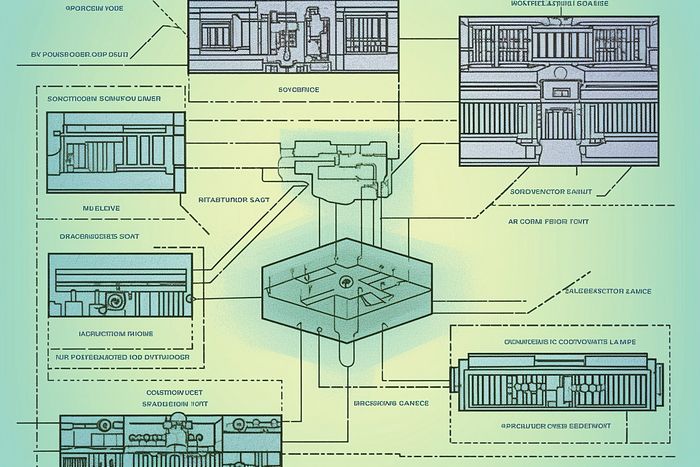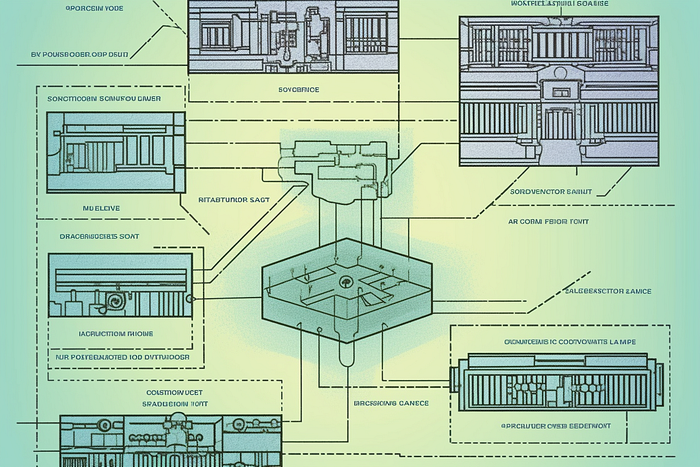Enabling Adaptive Institutions for Complex Systems
Written by Michael Zargham
The coinage of Model-Based-Institutional-Design (MBID) is an amalgamation of Model-Based-Systems-Engineering (MBSE) and Institutional Analysis and Development (IAD);
The latter was originally “Design” and Design is more in keeping with our proposed framework because the ongoing institutional development falls under Computer-Aided-Governance (CAG). Additionally, it was submitted as preparatory materials for a workshop on AI for Institutional Design at Oxford University, April 13–15, 2023.

Model-Based-Institutional-Design (MBID) and Computer-Aided-Governance (CAG) represent innovative approaches to understanding and designing institutions in an increasingly complex and interconnected world. These practices acknowledge the crucial role that artificial intelligence (AI) and other technologies play in shaping modern institutions and aim to leverage these advancements for improved institutional outcomes.
At the core of MBID is the application of Model-Based Systems Engineering (MBSE) to Elinor Ostrom’s Institutional Analysis and Development (IAD). This approach emphasizes the importance of understanding the ways in which social, operational, legal, technical, and economic elements, including AI components, constitute modern institutions — enabling those organizations to address their particular local resource allocation problems, social dilemmas and collective action challenges.
By creating comprehensive models that account for these varied elements, MBID provides a powerful machine-readable framework for designing and analyzing institutions, ensuring their alignment with their intended purpose and adaptability to changing environments.
One key aspect of MBID is the incorporation of AI as both an integral part of the institution and as a component of the external environment. This approach enables institutions to co-evolve their social and technical functions, and adapt to complex environments by leveraging AI technologies, while also accounting for the interactions, competition, or collaboration with other human-process-machine assemblages.
Computer-Aided-Governance, on the other hand, represents the ongoing and dynamic process of redesigning and adapting institutions through human participation, the use of AI and other advanced technologies (such as distributed ledgers). By employing AI in the design and analysis of institutions, stakeholders can harness the power of computer-aided workflows to efficiently and accurately evaluate various scenarios, leading to improved lived experiences on the part of people within these systems.
Engaging in Model-Based-Institutional-Design (MBID) provides mathematical and computational artifacts that facilitate Computer-Aided-Governance (CAG). Together MBID and CAG offer valuable methodologies for navigating this complexity and ensuring the effective design and governance of institutions in the 21st century. By embracing these practices, stakeholders can harness the potential of AI and other technologies to create more resilient, adaptive, and purpose-driven institutions, better equipped to face the challenges and opportunities of our rapidly evolving world.
This short essay was written as a summary of my active research as it pertains to AI and Institutional Design. The substance comes primarily from two forthcoming papers Block Diagrams for Categorical Cybernetics and What Constitutes a Constitution? You can read more about BlockScience’s research applying topics from artificial intelligence, especially dynamical systems and control theory, to the design and governance of emerging institutions in the following pieces:
Computer Aided Governance
- Zargham, M. and Emmett, J. “Computer-Aided Governance — A Revolution in Automated Decision-Support Systems” BlockScience (2019)
- Burrrata “Mapping the Computer-Aided Governance Process” BlockScience (2021)
- Emmett, J. and Zartler, J, “Computer-Aided Governance in Action: Steering Complex Systems Using the CAG Map” BlockScience (2022)
Generalized Dynamical Systems
- Zargham, M and Lima, E. “cadCAD Spec” BlockScience (2021)
- Zargham, M and Shorish, J. “Generalized Dynamical Systems Part I: Foundations” WU Vienna Working Paper Series (2022)
- Zargham, M and Shorish, J. “Block Diagrams for Categorical Cybernetics” Submitted to IEEE SMC (2023)
Cybernetics & Institutional Analysis Frameworks
- Zargham, M “Social Sensor Fusion” BlockScience (2018)
- Zargham, M and Nabben, K. “Algorithms as Policy” Blockscience (2020)
- Zargham, M and Nabben, K “Aligning ‘Decentralized Autonomous Organization’ to Precedents in Cybernetics” SSRN (2022)
- Zargham, M, Zartler, J, Nabben, K, Goldberg, R and Emmett, J “Disambiguating Autonomy” BlockScience (2022)
- Zargham, M, Alston, E, Nabben, K and Ben-Meir, I “What Constitutes a Constitution?” BlockScience (2023)
Economics and Machine Learning
- Zargham, M, Paruch, K and Shorish, J “Economic Games as Estimators” MARBLE-Springer Proceedings in Business and Economics (2020)
- Shorish, J, Stephenson, M and Zargham, M “A Practical Theory of Fungibility” WU Vienna Working Paper Series (2021)
- Zargham, M, Bernardineli, D, Clark, A, Shorish J and Emmett, J “Summoning the Money God: Applying Control Theory to Cryptocurrency Monetary Policy” Reflexer Labs (2021)


